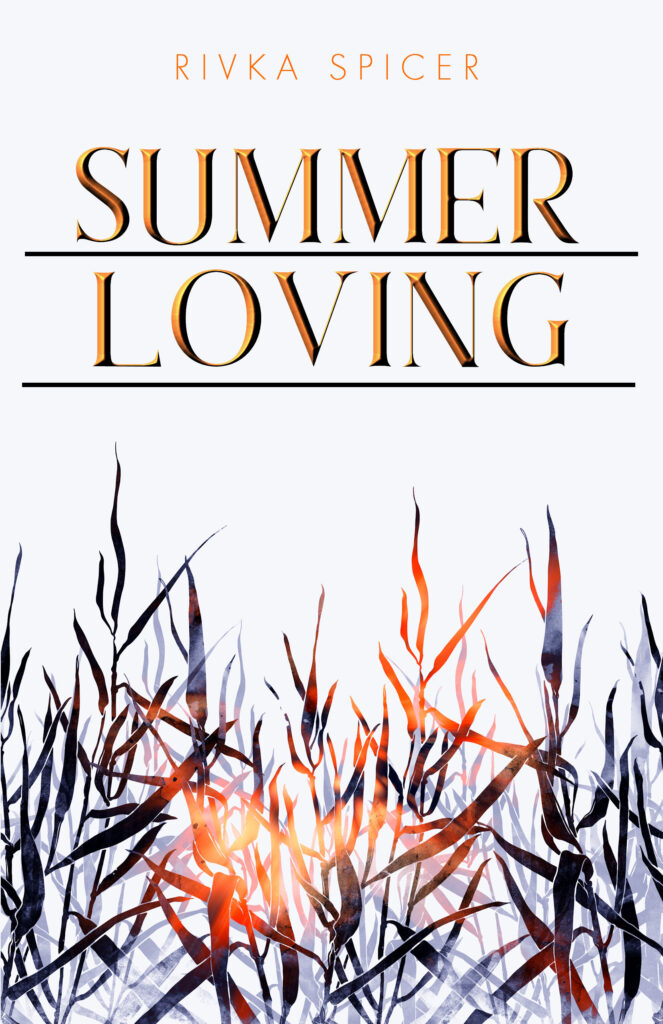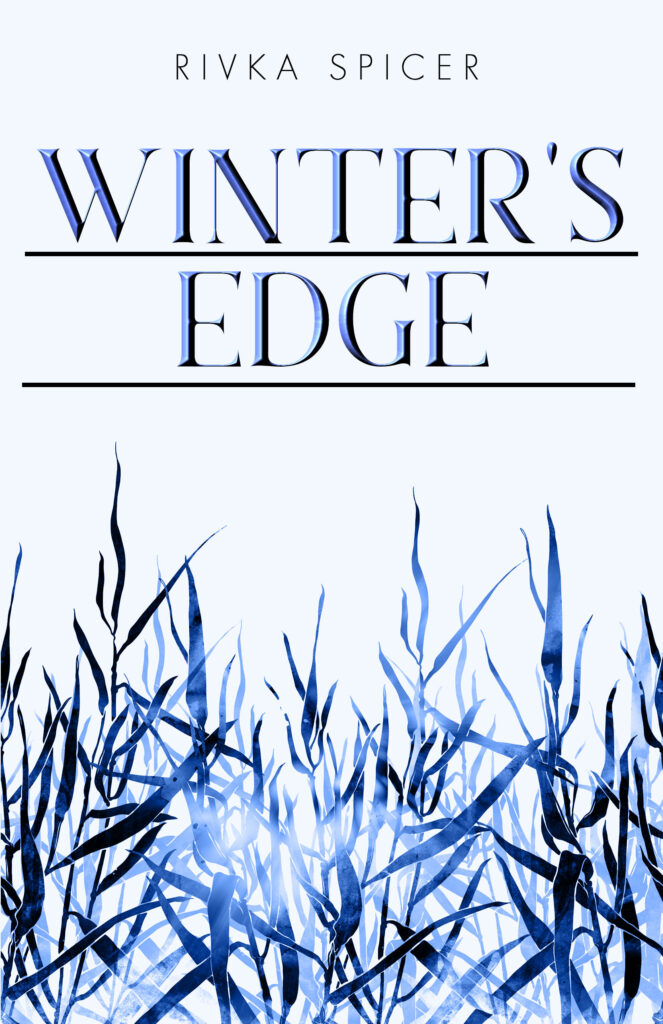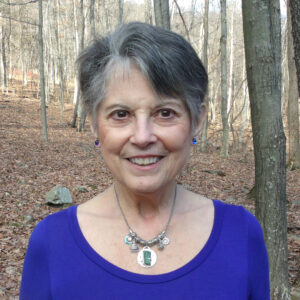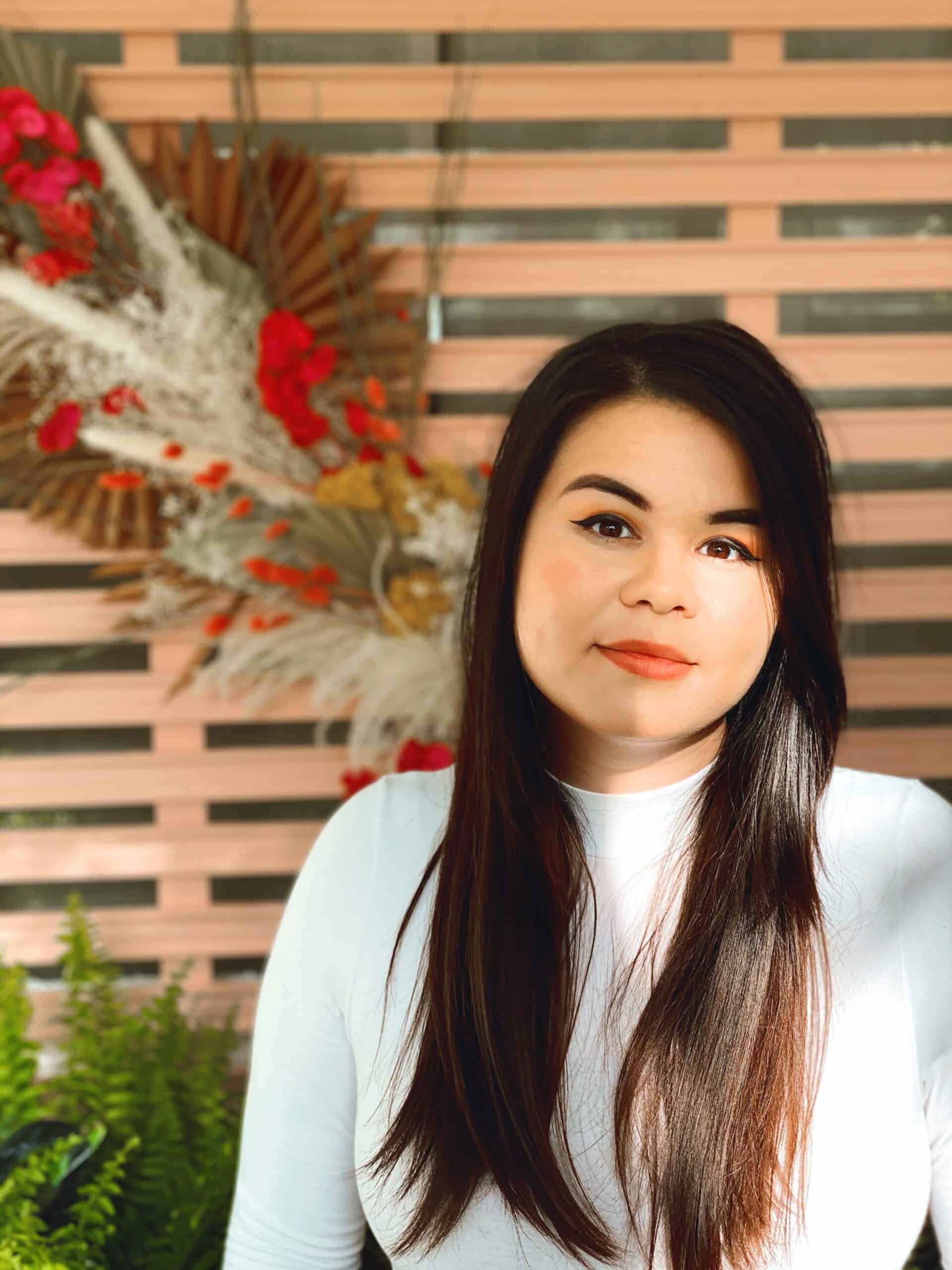Meet Rivka Spicer, the brilliant mind behind ‘The Four Seasons’ series. In this insightful interview, we dive into the inspirations and motivations driving her captivating storytelling. From the humorous anecdotes of ‘Summer Loving’ to the poignant explorations of patriarchy in ‘Winter’s Edge,’ Rivka shares her journey of weaving personal experiences and social commentary into compelling narratives. Join us as we uncover the essence of her writing process and the powerful themes resonating throughout her work.
1) Can you tell us about the inspiration behind “Summer Loving” and how your personal experiences with online dating influenced the story?
Every example of a terrible dating profile I used in the book was actually something I saw online while using dating sites. At the time I wrote it I was in a period of self-discovery and I was ready to start dating again after several years of healing. I was living in the far north of Scotland and working shifts, so it was hard to meet people socially. I thought online dating would be a great way to meet guys, and then I saw the profiles. It was honestly as funny as it was depressing – the things these guys would write about themselves ranged from the bizarre to the ridiculous. I’m not a maternal person, but something in me just wanted to gather them up and teach them how to do it properly, to write the things about themselves that were interesting to other people. It made me think about the way we project ourselves online and how superficial and thoughtless some of those things are. That’s how the story was born. The way we look at ourselves, and the selves that we project to other people, aren’t necessarily the truth of who we really are.

2) Summer Loving” delves into the theme of self-discovery and recognizing one’s own worth. How did you weave this theme into the narrative, and what message were you hoping readers would take away from it?
The theme runs strongly through the plot as Elise, the MFC, encourages the men she’s coaching to come to terms with what’s really important to them instead of what they think the world wants to see or know about them. It tackles the idea of believing in yourself, particularly when people around you have tried to tear you down out of jealousy or spite. It looks at the reasons we behave the way we do – how our traumas and successes shape us as people. Helping these men learn to love things about themselves helps them change the way they present themselves to the world. I was hoping that people would take a moment to reflect on themselves… to question what was important to them and what truly makes them who they are. I wanted to share the idea that authenticity is what makes you a truly beautiful person, not what’s on the outside or on Instagram.
3) Moving on to “Winter’s Edge,” it’s described as darker and less humorous compared to the first book. What led you to explore themes of patriarchy and systemic injustice in this installment?
These two books were written at very different times in my life. The world has changed so much in the years between writing them, becoming more polarised. I’ve also been doing a lot of internal work with my therapist, understanding how much of the trauma in my life has stemmed directly from being brought up in a patriarchal society. The constant microaggressions against women, the desire to please and submit, are built into us from a very young age, with the inevitable consequences. I wanted to write a book that reflects the world we live in, but that also shows a way out of it. It is possible to fight the system. If you know you’re right, and you have rights, it’s important to stand up for them. For you and for all the women that come after you. There’s this crazy systemic cognitive dissonance that you see playing out on the news every day, particularly since Roe v Wade was overturned, about what people believe women’s rights are and then how they trample all over them. In this book, that’s very much represented by the idea that of course no-one believes in magic, because that’s ridiculous, but they do believe in the curse and somehow, to the people of the town, both can be true at the same time. Magic isn’t real, but the curse is. Of course women have rights… just not over their own uterus.
4) Many readers have praised the portrayal of strong women in “Winter’s Edge.” Could you discuss the importance of representation and empowerment in your writing, particularly within the context of breaking generational curses?
Breaking generational curses is both incredibly difficult and very painful. Just recognising them is a deep wound, in and of itself, because the family narrative as being something wholesome and nurturing is something that’s, again, built into us from birth. We love the people in our bloodline, but I think too many of us don’t recognise the generational differences. Life for my grandmother and my mother was very different to the life that my generation has. We’re different people with different spectrums for understanding the world and our place in it. When our parents or grandparents try to fit us into ‘boxes’ that make sense to them and *their* view of the world, it can be damaging to who *we* are in the context of the world that we live in. I fully accept that I’m privileged in that sense also, because I know that women of colour suffer significantly more from generational curses based in racism and poverty, with roots tracing all the way back to slavery. They’re not just fighting family expectations; they’re fighting community expectations. That said, I think we’re also lucky in many ways. The women of my generation and the ones that came after have the ability to stand up and say no. We have the right to vote. The right to protest. The right to decide who we are in a way that’s unprecedented. We have the power to be allies to those women fighting deeper systems of oppression than ours. We have a long way to go, still, especially in the current political climate, but I hope that the quiet strength of my fictional sisters to stand up and say no to the wrongs done to them, after so many generations of their ancestors just accepting it, will empower women to think about their place in this world and inspire them to stand up and be counted. I grew up reading, and those books formed so many of my early ideals and perspectives. I want other girls to grow up reading books about strong and authentic women that will shape them into strong and authentic women themselves.

5) “Spring’s Kiss” is still in the drafting stages but is said to touch upon the concept of a person’s right to die. How did your grandmother’s experiences influence the direction of this story, and what themes are you hoping to explore regarding end-of-life choices?
This is kind of a tri-fold answer. My grandmother lived an extraordinary life, but the last decade or so was very difficult. She was in constant pain from complications with her diabetes and a crumbling spine, and various other health issues. Two years ago she refused treatment for breast cancer because she said there wasn’t any point and she might as well just get on with it. I’ve lost count of the number of times she told me over that decade how she wanted to die; that she’d lived her life and was ready to move on. She’d tell me to never get old because it was miserable. She’d get so angry and frustrated at the indignity of it all, at the hospitalisations and the boredom when it became too difficult for her to move around. She used to be a creative and crafty woman and eventually her eyesight and motor function were no longer good enough to do the things that made her happy. Obviously she was depressed, but at that stage of life there’s this weird medical attitude to it that it’s situational and can’t be helped and eventually she’ll move on and it won’t be an issue any more. When she finally did pass in January this year at the age of 97, it was neither quick nor easy. So that was what sort of sparked the idea for Spring’s Kiss. She wanted to go for so long and that’s anathema to the medical processes that kept her holding on. A right to choose would have saved her a lot of misery, especially since she was still in possession of all her mental faculties. The second thing I want to explore is the way society views death. I have what I’ve come to learn is a very peculiar attitude towards it. Sometimes I joke that death and I are old friends. I’ve been alternately passively or actively suicidal since the age of 13. When I try to explain to people what passive suicidal ideation is like, it’s amazing how often it strikes a chord. I think most people experience the call of the void at some time or another, like when you stand by the side of the road and see a bus coming, there’s the impulse out of nowhere to just step in front of it. And we don’t, because we manage those impulses, but some of us get them more often than others. This is something I’ve lived with for such a long time that the concept of death, of absolute oblivion, doesn’t scare me any more. It almost seems kind of peaceful. When grandma died I was relieved for her because she wasn’t suffering any more. And I think that more people should have that attitude towards death. It’s not something to be afraid of. It’s a natural part of the cycle of being a living creature on this earth. I feel that people in general would live better, more wholesome and more fulfilling lives if they didn’t spend so much of it in abject fear of death, or in planning for legacies to leave behind, or worrying about what comes after. There’s a certain dignity in just embracing it when it’s time. The third thread of the story I want to explore is the way the law views assisted suicide. In the UK, where the books are set, the wording of the law is pretty nebulous and essentially comes down to whoever is in charge of the Crown Prosecution Service making the decision on a case by case basis. I’ve often wondered what influences that decision, especially since the listed circumstances can be open to interpretation, so that was something else I wanted to explore – what kind of biases would make a prosecution “in the public interest”?
6) As you navigate through these different themes and personal experiences in your writing, how do you balance storytelling with addressing heavier subjects such as trauma, patriarchy, and mortality?
I address it mostly in the situational circumstances the characters find themselves in, and obviously there are elements of my personal experiences and philosophies in the characters themselves and how they behave in the world I’ve constructed. I want my characters to be relatable and for the reader to empathise with them. I had a lot of messages from women all around the world when Summer Loving hit the bestseller list saying that it had made them think about themselves in a new light, and that was very special. With Winter’s Edge, I want them to see the world around them in a different light. With Spring’s Kiss I hope to challenge readers to feel more alive in the present. Some of those heavier subjects are very obviously addressed – the main persecution in Winter’s Edge is from the local government and the church – perfect examples of systemic patriarchal sexism. With things like mortality, I want people to wonder what they’d do under the same circumstances by making the characters relatable and likeable. By readers asking themselves those questions, they’re already approaching the wider thoughts about mortality in general.
7) The Four Seasons series seems to tackle a wide range of emotional and societal issues. How do you approach research and ensure authenticity when incorporating real-life experiences and social commentary into your fiction?
I’m lucky to have lived a life full of experiences, both good and bad, that I can use to write these books. In fact some portions of Summer Loving were adapted directly from my personal journal at the time. By telling those stories from the perspectives of the main characters, they become an authentic voice for that experience from their perspective and I think that’s what’s important. My lived experience of an event will be different to the lived experiences of others at the same event and my characters acknowledge that. I try to keep the framework as real as possible too – for Winter’s Edge I did a lot of research into case law, particularly about the deaccession of human remains, and I hoped that setting the story in relation to a heritage museum would bring up wider questions about the larger museums and their collections that perhaps should be returned to where they came from. I’m still in the drafting stages of Spring’s Kiss but my notes about the law as it pertains to assisted suicide are already copious. Once I think I’ve finished a book, I’ll put it out to a small group of trusted beta readers to make sure that my characters are consistent and the storyline isn’t too off the wall and that I haven’t made any mistakes with my interpretation of legal proceedings.
8) Can you share any insights into your writing process, particularly when dealing with complex and sensitive topics like those found in “Winter’s Edge” and “Spring’s Kiss”
To be fair, my writing process could be described as very organic. I get an idea and I let it percolate for a while in my mind, usually parsing it over in the shower or late at night, for days or weeks until it’s formed enough to start writing. Then I put fingers to keys and just let it pour out. I let the dialogue of the characters direct a lot of it, filling in the world around them, until the story reaches a natural conclusion. Then I go back and edit.
I think the key to approaching sensitive topics is to be fearless about it. I’m not afraid to talk publicly about my own mental health because I don’t think the stigma or taboo does anyone any good. Quite the opposite, in fact. My books are the same – I’m not afraid to call things out and if someone wants to leave me a bad review because they didn’t like the themes, I think that says more about themselves and society than anything about me. An open, honest, authentic voice speaking out about something can be powerful. Challenging people to think about those topics is the first step towards creating a society where these things aren’t taboo and don’t have stigma attached. And that’s the first step towards changing or fixing those issues in society. Diminishing that voice through fear of judgement, or to try to please people, doesn’t serve any purpose. Be fearless and open. Talk about the important things. Bring them out of the shadows and shine a light on them. Even if I get it wrong, I’ve still started the discussion and that’s important.
9) The series features recurring characters across multiple books. How do you ensure continuity and character development throughout the series while also allowing each book to stand on its own?
The jump from Summer Loving to Winter’s Edge was actually fairly easy because the main character of the second book was a very minor character in the first book. I think he only appeared in one or two scenes as the brother of one of the main love interests, so continuity wasn’t difficult. Two of the main characters from the first book do appear in the second, but only as minor characters. The third book is going to be more difficult to get right because the MMC is one of the main characters from the first book, and more of the characters from Winter’s Edge will be around, as it takes place in the same town. I’m not a meticulous writer that has a universe bible; I keep it all in my head and will often go back and check details from previous books to make sure I haven’t missed a detail. I’m also incredibly lucky because my beta readers are big fans, so they know the universe and the characters and will point out things I’ve missed. And if anything gets past them, my stepmother, who is my biggest fan, will point it out when she’s read it!! Each book stands alone because each one is an entire contained story and I try not to rely too much on previous storylines unless it’s pivotal to the story, in which case I’ll find a way to work it in naturally to the flow of the story.
10) Looking ahead, do you have any plans for future projects or themes you’re interested in exploring beyond “The Four Seasons” series?
I have been thinking about returning to an experimental series I wrote a long while back. It was not long after 50 shades of grey came out and there was this huge rise in “romance” books that were basically abusive relationships, and as a survivor of domestic abuse, I was quite distressed by it. I thought I’d write a book where the first half was a woman getting suckered in by one of these guys, and about how insidious it is and how you get in over your head without realising what’s happened to you. In the second half of the book, she gets free and starts to repair the emotional damage and learns to be empowered in her relationships going forward. It was supposed to be a wakeup call to readers about what a healthy relationship should look like and, while it did very well, the one thing that readers kept saying was how much they loved the main male character and thought he was so romantic and such a great guy. Even though the book literally starts with him stalking her and engineering a meeting by throwing coffee down her dress, the readers still felt like it was a romance for the ages. Even though they learned in the second half of the duology all the ways in which his behaviour was wrong, they didn’t care and loved him anyway. I was a bit stumped by that. It’s taken me a long time to understand that in many ways the voraciousness of readers for that kind of book is also a result of the patriarchy, because it’s a fetishisation of trauma. With that new knowledge and understanding, I think it would be interesting to try the experiment again, a kind of anti-dark-romance romance.
Rivka’s Socials:
https://www.facebook.com/RivkaSpicerAuthor
Ko-fi, I’m on there at:







Thank you so much for taking the time to interview me! ❤️